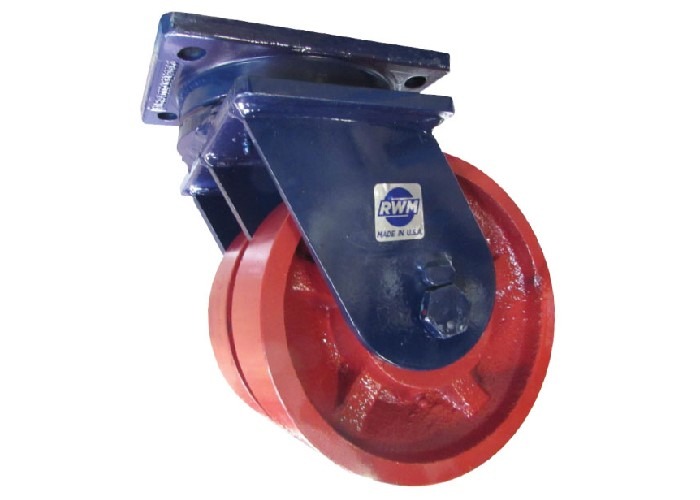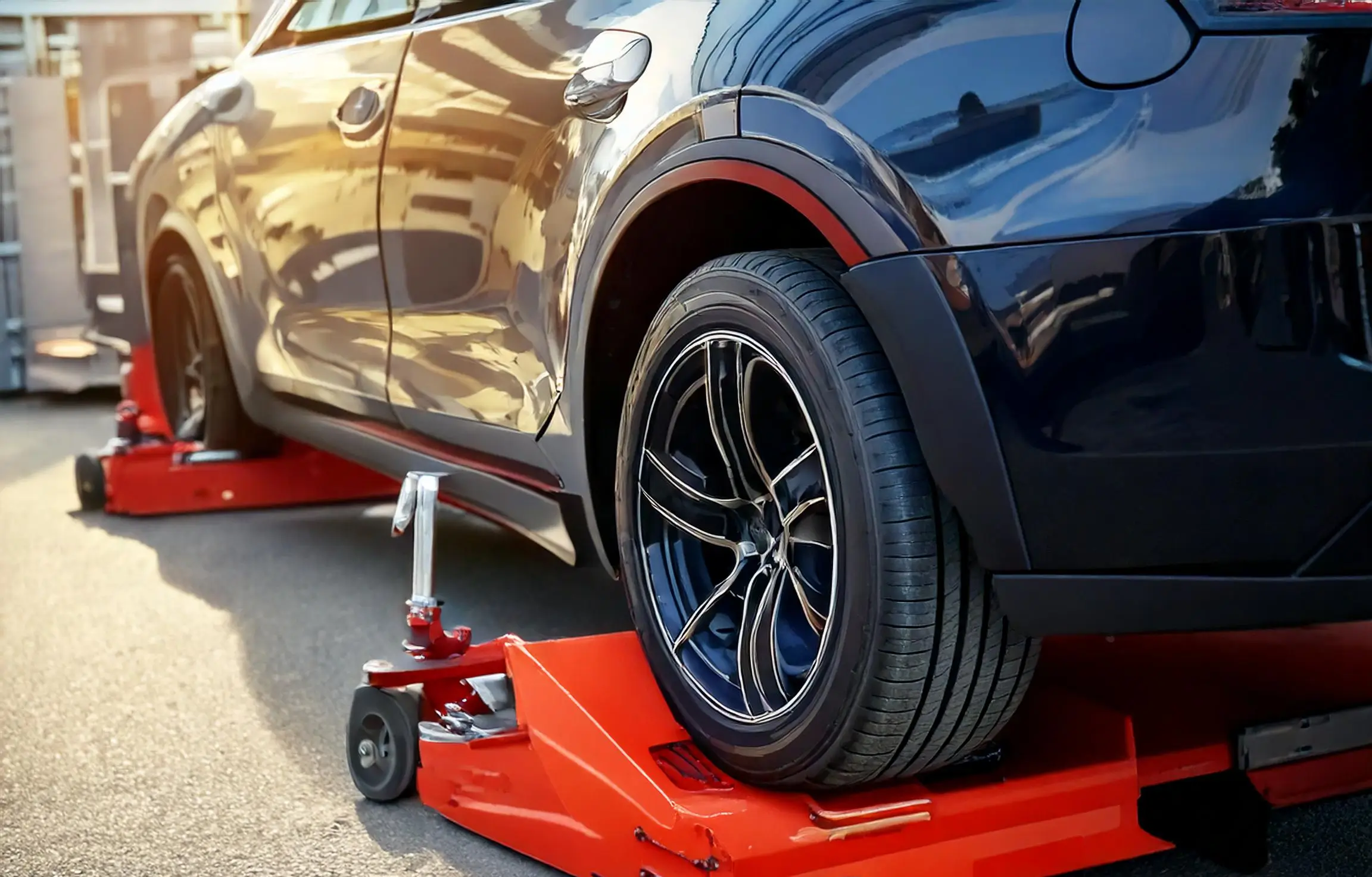Caster wheels are everywhere, even if you don’t always notice them. They help move heavy equipment, carts, and furniture with ease. Whether in factories, hospitals, or offices, the right caster wheels make work safer and more efficient. But with so many types—like swivel caster wheels, locking caster wheels, and heavy-duty caster wheels—how do you choose the best one?
If you’re looking to make moving things easier, reduce strain, or improve workplace safety, understanding industrial caster wheels is important. In this guide, we’ll break down the different types, their benefits, and how to keep them in great shape. By the end, you’ll know exactly what to look for when choosing the right wheels for your needs. Let’s get started!
Table of Contents
The Basics of Caster Wheels
Have you ever stopped to think about how easily heavy carts, machinery, and furniture move around? The secret lies in caster wheels—small but powerful components that make transportation effortless in warehouses, hospitals, offices, and more. But not all caster wheels are the same. Choosing the right type can make a big difference in how smoothly, safely, and efficiently things move.
What Are Caster Wheels?
A caster wheel is more than just a wheel—it’s a complete assembly designed to rotate and roll, reducing friction and making movement easier. Unlike standard wheels that move in a straight line, many caster wheels can swivel, allowing for greater maneuverability.
There are two main types:
- Swivel caster wheels – These rotate 360 degrees, making it easy to change direction. They’re perfect for applications requiring flexibility, like medical carts or rolling toolboxes.
- Rigid caster wheels – These move in a straight line and don’t turn. They’re great for loads that need to move steadily without shifting direction.
Key Parts of a Caster Wheel
Understanding a caster wheel’s components can help you choose the right one for your needs. The main parts include:
- Wheel – Available in materials like rubber, polyurethane, and steel, each designed for different surfaces and weight capacities.
- Mounting Plate or Stem – Connects the caster to the equipment. Plates provide more stability, while stems work well for furniture and lighter applications.
- Fork or Yoke – Holds the wheel in place and allows it to swivel, if applicable.
- Bearings – Help reduce friction for a smoother roll, preventing wear and tear.
Why Do Caster Wheels Matter?
Think about a warehouse that needs to transport heavy loads efficiently. Without industrial caster wheels, moving large items would be time-consuming and physically demanding. Caster wheels help businesses:
Boost efficiency – Workers can move materials faster, reducing downtime.
Improve safety – Properly chosen caster wheels prevent tipping and reduce workplace injuries.
Protect floors – The right wheel material prevents damage to delicate surfaces.
Whether you need heavy-duty caster wheels for industrial machinery or swivel caster wheels for flexible movement, understanding the basics will help you make the best choice. Next, let’s explore how to pick the right caster wheels for your specific needs.
Choosing the Right Caster Wheels for Your Needs
With so many caster wheels available, how do you know which one is best for your equipment? The right choice depends on several factors, including weight capacity, floor type, and how often the wheels will be used. Making the wrong choice could lead to unnecessary wear and tear, safety issues, or poor maneuverability. Let’s break it down step by step.
1. Consider the Load Capacity
One of the most important factors when selecting heavy-duty caster wheels is weight capacity. Overloading a caster can lead to wheel failure, damage to floors, and even workplace accidents.
- Light-duty applications – Office chairs, small carts, and household furniture often use rubber caster wheels for smooth and quiet movement.
- Medium-duty applications – Shelving units, medical equipment, and light industrial carts need a balance of durability and maneuverability.
- Heavy-duty applications – Industrial carts, machinery, and warehouse trolleys require industrial caster wheels designed for high weight loads.
Pro Tip: Always check the maximum load capacity per caster and divide the total load among all the wheels. This ensures even weight distribution and long-lasting performance.
2. Choose the Right Wheel Material
The material of your caster wheels affects their durability, noise level, and impact on flooring. Here’s a quick guide to help you decide:
- Rubber caster wheels – Ideal for indoor use, offering a quiet, smooth ride. Best for office spaces, hospitals, and light-duty applications.
- Polyurethane wheels – A great all-around option, resistant to wear and chemicals. Suitable for both industrial and commercial environments.
- Steel or cast iron wheels – Extremely durable and designed for heavy-duty caster wheels applications. However, they can be noisy and may damage softer floors.
- Nylon or plastic wheels – Lightweight and corrosion-resistant, making them a good fit for wet environments.
3. Decide Between Swivel or Rigid Casters
- Swivel caster wheels – Perfect for applications that require frequent direction changes, such as tool carts or medical equipment.
- Rigid casters – Best for straight-line movement, ideal for heavy machinery that doesn’t need to turn often.
Combination Tip: Many industries use a mix of both swivel and rigid casters to balance maneuverability and stability.
Also Read: Choosing the Correct Wheels for Moving Shipping Containers
4. Think About Brakes and Locking Mechanisms
In some cases, you may need locking caster wheels to keep equipment in place. These locks prevent unwanted movement, which is especially useful in medical and industrial settings. Options include:
- Total lock brakes – Stop both the wheel and the swivel motion.
- Directional locks – Allow the wheel to roll but prevent swiveling.
- Friction brakes – Apply gradual stopping force, commonly used for carts and dollies.
Make the Right Choice for Smooth and Safe Movement
By considering weight capacity, wheel material, and locking features, you can select the right industrial caster wheels for your specific needs. Whether you need smooth and silent movement for a hospital or heavy-duty caster wheels for a factory, the right choice will improve efficiency, safety, and durability.
Next, let’s explore the many benefits of using high-quality caster wheels in different industries!
Applications and Benefits of Caster Wheels
Caster wheels are used everywhere—factories, hospitals, offices, and even restaurants. They make it easier to move heavy loads, reduce strain, and improve efficiency. But how exactly do they help different industries? And why should you choose high-quality industrial caster wheels? Let’s take a closer look.
Where Are Caster Wheels Used?
No matter what kind of business you run, caster wheels can make everyday tasks easier. Here are some common uses:
- Warehouses and Factories – Heavy-duty caster wheels help move large, heavy loads safely and quickly.
- Hospitals and Clinics – Swivel caster wheels make it easy to push medical carts, stretchers, and equipment.
- Retail Stores and Restaurants – Clothing racks, food service carts, and rolling shelves use caster wheels for convenience.
- Auto Shops and Factories – Kingpinless casters handle tough jobs, moving tools, machines, and even vehicle parts.
- Offices and Schools – Rubber caster wheels help protect floors while making chairs, desks, and storage units easy to move.
Tip: Using a mix of swivel caster wheels for easy turning and fixed wheels for stability can help improve movement.
Why Are Caster Wheels Important?
The right caster wheels don’t just make things easier—they can save time, prevent injuries, and even protect your floors. Here’s why they matter:
1. Move Things Faster and With Less Effort
Industrial caster wheels help workers transport heavy items more easily, reducing the time and energy needed to get things done.
2. Make Work Safer
Pushing heavy loads without the right wheels can cause injuries. Heavy-duty caster wheels provide better control, reducing the risk of accidents.
3. Protect Floors and Reduce Noise
Some wheels can scratch or damage floors. Rubber caster wheels roll smoothly and quietly, making them great for offices, hospitals, and schools.
4. Last Longer and Save Money
Cheap caster wheels wear out quickly, meaning more frequent replacements. Investing in RWM’s kingpinless casters or other high-quality wheels ensures durability, saving money in the long run.
Caster Wheels Make a Big Difference
Whether you need locking caster wheels to keep equipment in place, swivel caster wheels for easy movement, or heavy-duty caster wheels for tough jobs, choosing the right type can improve efficiency, safety, and durability.
Next, we’ll cover how to take care of your caster wheels so they last longer and work smoothly!
Explore: How to Move Multiple Containers Quickly Without Heavy Machinery
Maintenance and Longevity of Caster Wheels
Caster wheels work hard every day, carrying heavy loads and rolling across different surfaces. But like any moving part, they wear out over time. Proper maintenance not only extends their lifespan but also keeps your equipment moving smoothly and safely. So, how do you keep your industrial caster wheels in top shape? Let’s go over the key steps.
Common Signs of Wear and Tear
Ignoring small issues with caster wheels can lead to bigger problems. Here’s what to watch for:
- Worn-out or flat spots on the wheels – This can make movement rough and uneven.
- Difficulty rolling or turning – If swivel caster wheels don’t move freely, they might need cleaning or lubrication.
- Unusual noises – Squeaking or grinding sounds often signal a problem with the bearings.
- Loose or damaged mounting hardware – Bolts and plates should always be secure to prevent accidents.
- Cracks or chunks missing from the wheels – This is common in rubber caster wheels after heavy use.
Tip: Regularly inspecting your wheels can prevent sudden breakdowns and costly replacements.
How to Maintain Your Caster Wheels
Taking care of your heavy-duty caster wheels is simple when you follow these steps:
1. Keep Them Clean
Dirt, dust, and debris can build up over time, making it harder for wheels to roll smoothly. Wipe them down regularly and remove any tangled hair or string.
2. Lubricate Moving Parts
To keep swivel caster wheels turning freely, apply lubricant to the bearings and axles every few months. Use a high-quality grease or oil designed for caster wheels.
3. Check for Loose Bolts and Fasteners
Caster wheels take on a lot of stress, which can cause screws and bolts to loosen over time. Tighten them regularly to keep the wheels securely attached.
4. Replace Damaged Wheels or Parts
If a wheel has deep cracks, flat spots, or broken bearings, it’s time for a replacement. RWM Casters and RWM’s kingpinless casters are excellent options for long-lasting performance.
5. Match Wheels to the Right Surface
Using the wrong wheels on rough or soft flooring can cause them to wear out faster. Rubber caster wheels work well on smooth indoor floors, while heavy-duty caster wheels with steel or polyurethane materials are better for industrial settings.
Know More: Tips for Efficient Long-Distance Moves
Why Proper Maintenance Matters
Taking care of your caster wheels isn’t just about making them last longer—it also improves safety, efficiency, and cost savings. Well-maintained locking caster wheels ensure carts stay in place, preventing accidents, while smooth-rolling industrial caster wheels reduce strain on workers.
A little maintenance goes a long way! By keeping your caster wheels in top condition, you’ll ensure smooth operation and avoid unnecessary downtime.
Ready to make the best choice for your needs? Let’s wrap up with key takeaways to help you select and maintain the perfect caster wheels!
Conclusion: Make the Right Move with Caster Wheels
Choosing the right industrial caster wheels can make a huge difference in how efficiently and safely equipment moves in your workplace. From heavy-duty caster wheels for warehouses to swivel caster wheels for precise maneuvering, the right selection ensures durability, ease of use, and long-term cost savings.
But it’s not just about choosing the best wheels—it’s also about maintaining them. Regular cleaning, lubrication, and inspections keep your locking caster wheels rolling smoothly and prevent costly replacements. With the right care, your caster wheels will last longer, perform better, and keep your operations running smoothly.
Now that you understand the ins and outs of caster wheels, you’re ready to make informed decisions. Whether upgrading your equipment, replacing worn-out wheels, or improving workplace safety, investing in high-quality caster wheels is a step in the right direction.
FAQs
1. What are the best caster wheels for heavy loads?
For heavy-duty applications, kingpinless casters and RWM Casters are excellent choices. They are designed for strength, durability, and long-lasting performance under extreme loads.
2. How do I choose between swivel and rigid caster wheels?
Swivel caster wheels allow for easy turning and maneuverability, making them ideal for medical carts and office chairs. Rigid caster wheels, on the other hand, provide straight-line movement and are best for industrial carts carrying heavy loads.
3. How often should I maintain my caster wheels?
Regular maintenance should be done every few months. Check for wear and tear, clean off debris, lubricate moving parts, and tighten any loose bolts to ensure smooth operation.
4. Are rubber caster wheels good for all surfaces?
Rubber caster wheels work best on smooth indoor surfaces, such as tile, hardwood, and concrete. For rougher floors or industrial environments, consider polyurethane or steel wheels for better durability.



